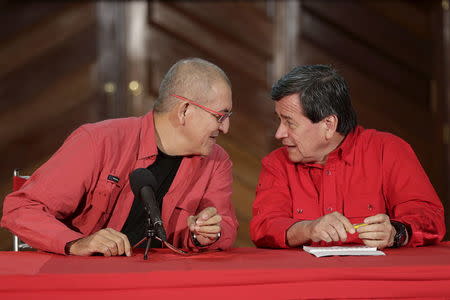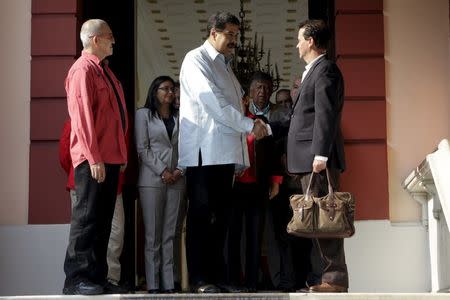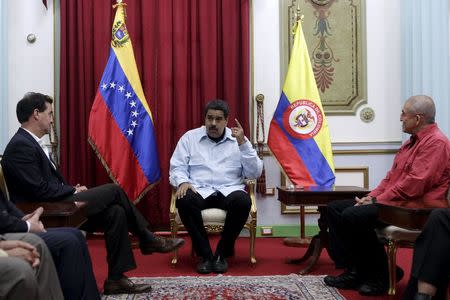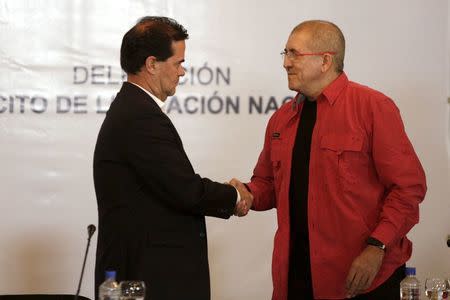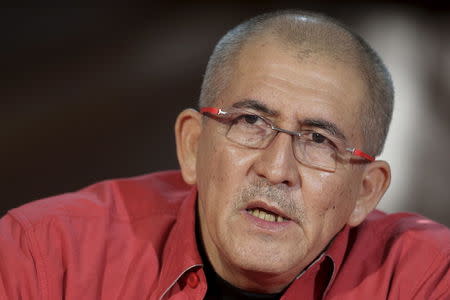Colombia, ELN rebels to begin peace talks in Ecuador
CARACAS/BOGOTA (Reuters) - The Colombian government will begin formal peace talks with leftist National Liberation Army (ELN) rebels, moving the country a step closer to ending its five-decade-old conflict, the two sides said in joint statement on Wednesday. The Ecuador-based negotiations, which were announced by the leaders of the peace delegations in Caracas, Venezuela, will begin within two months. Colombia and the ELN, the Andean nation's second-largest guerrilla group, have been in preliminary talks for over two years. The group recently freed two hostages, which President Juan Manuel Santos had demanded as a condition for the start of formal talks. "Peace is a supreme asset for every democracy," the statement said, adding that the goal of the talks was to move quickly "toward national reconciliation." The two sides will work on a six-point agenda that includes the rights of victims, social justice and an end to the conflict, among other issues. Cuba, Norway, Venezuela, Chile, Brazil and Ecuador will act as guarantor nations. "It will be the end of guerrilla groups and we can all concentrate - democratically - on making our country the free, normal, modern, just and inclusive place it can and should be," Santos said during a televised address. Negotiations with the ELN are separate from those underway in Havana with the Revolutionary Armed Forces of Colombia, or FARC, the country's larger rebel group. Both organizations are considered terrorist groups by the United States and European Union. MISSED DEADLINE Official talks would come as approval ratings hit new lows for Santos, who replaced hard-line President Alvaro Uribe in 2010. Now an opposition senator, Uribe and his backers have harshly criticized the FARC talks, saying they will foster impunity for human rights violations. Colombia has been negotiating with the FARC for over three years. Last week, the two sides failed to reach a self-imposed deadline for a final accord. The 2,000-strong ELN has increased oil pipeline bombings in recent months and continued kidnappings, in what many saw as an attempt to pressure the government into talks. Inspired by Cuba's 1959 revolution, the ELN has battled a dozen Colombian governments since it was founded by radical Catholic priests in 1964. While many Colombians are suspicious of peace talks, they are tired of the violence that has killed more than 220,000 and displaced millions over more than half a century. (Reporting by Luis Jaime Acosta, Julia Symmes Cobb and Helen Murphy in Bogota and Eyanir Chinea and Girish Gupta in Caracas; Editing by Paul Simao, Tom Brown and Bernard Orr)
